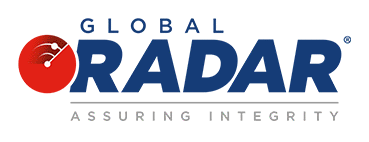The results of a recent cross-border survey conducted by renowned anti-corruption agency Transparency International highlighted significant limitations with respect to the anti-graft efforts of many of the world’s most powerful countries. The latest installment of the Corruption Perception Index (CPI) – an annual analysis which attempts to measure the level of perceived corruption in the public sector across numerous jurisdictions – found that over 130 of the countries assessed have failed to make meaningful progress on corruption over the past decade, with the rankings for over 25 nations falling to all-time lows over the past year alone.3 The scale currently ranks 180 countries on a scale from 100 (very clean) to 0 (highly corrupt) based upon expert assessments and multi-industry surveys. Corruption is defined by the organization as the abuse of entrusted power for private gain. While the CPI does not factor in issues related to illegal financial activity (i.e. money laundering and terror financing) nor the myriad of suspicious activities associated with the numerous international tax havens of the world, public sector corruption is believed to have a direct correlation with global human rights violations when left unchecked.
The United States ranked 27th on the recently published list with their score remaining at 67/100, equal with that of the 2020 assessment. While scores fell several times during the previous presidential administration, in 2021 the U.S. lost its position among the top 25 best-performing countries on the CPI for the first time in a decade. The Biden administration has recently sought to bolster cooperation amongst government agencies and improve the use/appropriation of resources to better combat illicit finance and enforce the Foreign Corrupt Practices Act (FCPA) – a measure that bars American entities from paying bribes to foreign government officials. Over the last several years, the U.S. Department of the Treasury’s Financial Crimes Enforcement Network (FinCEN) and other government bodies have utilized increasingly potent anti-money laundering legislation to prosecute international public officials who have been found accepting bribes from companies and subsequently laundering money through the U.S. via various means, efforts that President Biden is seeking to expand upon. The implementation of the Corporate Transparency Act passed by Congress in 2021 is expected to be a boon to fight against illicit finance, most notably through the misuse of shell companies by persons of interest to the federal government. This can include those with ties to the drug and human trafficking trades, politically exposed persons (PEPs), high level officials and oligarchs, and even terror organizations all seeking to launder ill-gotten cash across American borders. The legislation will reportedly see the U.S. Department of the Treasury establish a corporate ownership registry that legislators believe will directly prevent the use of anonymous shell companies for illegal means.
The administration’s anti-corruption reforms have also called on the U.S. Justice Department and other federal agencies to establish new programs, where appropriate, and to increase staffing and resources aimed at tackling corruption both in the U.S. and abroad.2 Not entirely surprising however, analysts believe the Covid-19 pandemic has become a major contributing factor to the recent stall in global anti-graft efforts. Some have speculated that corruption and a lack of uniform access to medical resources has propelled the ongoing public health crisis caused by the virus. The report notes that many countries have capitalized on the pandemic, using it as an excuse to curtail basic freedoms and side-step important checks and balance in this regard.1 Although much of the developed world has struggled to inch back towards a relative normal, it is telling that the effects of the virus continue to hamper developments across the realm of financial security.
Citations
- “CPI 2021: Trouble at the Top – News.” Transparency.org, 25 Jan. 2022.
- Tokar, Dylan. “Biden Ramps up Fight against Corruption.” The Wall Street Journal, Dow Jones & Company, 4 June 2021.
- Tokar, Dylan. “Many Countries Fail to Counter Corruption despite Promises, Antigraft Group Says.” The Wall Street Journal, Dow Jones & Company, 25 Jan. 2022.

